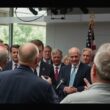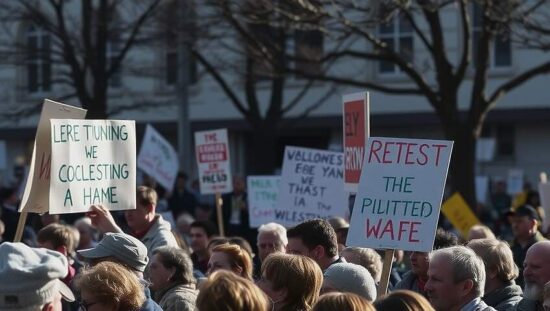The rhetoric surrounding the potential for a ban on the Alternative for Germany (AfD) party has intensified following remarks by Federal President Frank-Walter Steinmeier, triggering a fiery backlash from the party itself. In a speech commemorating the anniversary of the November 9th pogrom, Steinmeier addressed the potential role of a party ban as a “last resort” in safeguarding democracy, a clear allusion to the AfD’s increasingly extremist leanings.
The President’s remarks, while not explicitly naming the AfD, were widely interpreted as a direct warning against the party’s trajectory. He underscored the necessity of societal and political action, stating that individuals challenging the fundamental tenets of the constitution should be deemed unfit for roles such as judges, teachers and soldiers. This declaration, combined with the suggestion of proactive measures, has been framed by the AfD as a call for a political persecution.
Bernd Baumann, parliamentary director of the AfD’s parliamentary group, accused Steinmeier of “misusing his office” and attempting to obstruct any form of cooperation with Germany’s currently strongest political force, as measured by polling data. Baumann further alleged that Steinmeier intentionally positioned the AfD alongside Nazi perpetrators by delivering the speech on the poignant date of November 9th.
The AfD’s criticism underscores a growing trend of portraying any scrutiny or potential legal action as politically motivated attacks, designed to delegitimize their support base. Baumann attributed similar conservative political ascensions in countries like the United States and Italy to a more pragmatic approach absent in Germany, accusing the “left-green political class” of acting erratically. He concluded by emphasizing that it is ultimately the electorate who hold the power to “stop” this perceived political overreach.
The exchange highlights a deeply polarized political climate in Germany, where anxieties about the erosion of democratic values are colliding with accusations of partisan maneuvering and potential abuse of power. While Steinmeier’s words were intended as a warning about the dangers of extremism, they have served to further inflame tensions and solidify the AfD’s narrative of victimhood. The broader implications of this escalation, particularly concerning the fragility of Germany’s political discourse and the potential for further radicalization, remain to be seen.





